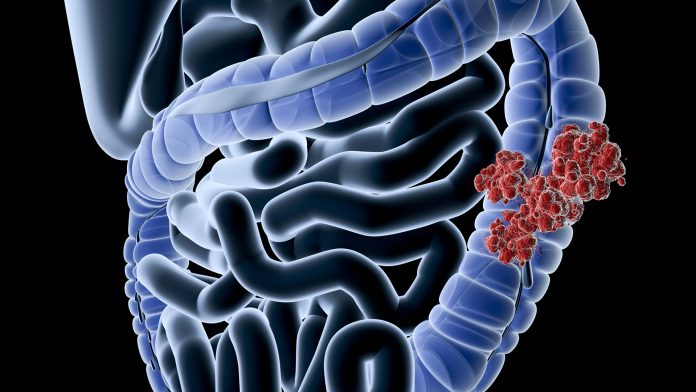
Researchers from the University of Geneva (UNIGE) have found a way to overcome resistance to colon cancer treatment.
Colon cancer is one of the forms of cancer. Treatment for the disease mostly centres around chemotherapy. However, patients often develop a resistance to chemotherapy causing them to become unresponsive to the treatment. Due to this resistance, the five-year survival rate for colon cancer patients is low.
The UNIGE researchers successfully recreated the resistance in a laboratory. The team used an optimised combination of drugs made up of tyrosine kinase inhibitors. These drugs each use pathways different to chemotherapy to attack cancer cells.
The results of the study have been published in the journal Cancers. The researchers hope their findings will open possibilities for overcoming treatment resistance and allow for new targeted colon cancer treatments
Colon cancer treatment is highly challenging
Colon cancer is the third most common cancer in the world and is second only to lung cancer in rates of mortality. It usually develops around the age of 50 in the terminal part of the colon. Colon cancer changes the DNA of cells in this organ. The cells become cancerous and proliferate uncontrollably until they form a primary tumour.
Similar to many cancers, these cells can migrate to other parts of the body and from secondary tumours. This is known as metastatic cancer.
Genetics can play a role in the development of colon cancer, however, risk factors including inflammatory bowel diseases and dietary habits such as high alcohol and red meat consumption can also play a part.
Chemotherapy is usually used to treat primary cancer alongside surgery, secondary cancer is typically treated through a combination of chemotherapies. These chemotherapies are non-targeted and aggressive and can cause significant side effects. They can also lead to progressive resistance to colon cancer treatment in most patients.
A research team was led by Patrycja Nowak-Sliwinska, an associate professor in the School of Pharmaceutical Sciences at the Faculty of Science of the UNIGE. The team succeeded in discovering why this resistance phenomenon existed in cancer cells. The team also found a way to overcome the resistance using a combination of tyrosine kinase inhibitors.
Tyrosine kinases facilitate the transportation of a phosphate group to a key protein for cell division and growth. Using a specific mixture of inhibitor molecules these enzymes are blocked and transportation is interrupted, causing the proliferation of tumour cells to be slowed down or stopped.
The UNIGE team used cancer cell lines from different patients to make their discovery. After letting the cells proliferate in the laboratory, the researchers exposed them to FOLFOXIRI, the most common chemotherapy combination for treating colon cancer.
‘‘After about 34 to 50 weeks of exposure, we managed to obtain in vitro this phenomenon of acquired chemoresistance, as we observe in a clinical situation’’, explained Nowak-Sliwinska, the last author of the study.
Opportunities to improve chemotherapy
The researchers observed that the resistant cells caused desensitisation of the plasma membrane, which had become less permeable to the molecules coming from the chemotherapeutic drugs. Therefore, they are unable to sufficiently penetrate the cells.
The researchers then noted the deregulation of the genes responsible for the lipid circulation networks, which must be specified.
‘‘We then exposed the resistant cells to a combination of tyrosine kinase inhibitors previously optimized in our laboratory. We noticed that they made it possible to overcome this resistance by taking another ‘path’ than the one used by the chemotherapy molecules to signal the cell,’’ said George M Ramzy, a PhD student at the School of Pharmaceutical Sciences at UNIGE and first author of the study.
The researchers were able to successfully block 82% of the metabolic activity of these cells, weakening them considerably. The team believes this outcome can lead to new resistance-proof colon cancer treatment.
‘‘In addition to overcoming resistance, this colon cancer treatment has the advantage of acting in a targeted manner. Its action is specific to tumour cells, which is not the case with chemotherapies, which act aggressively on a broader spectrum of cells,’’ concluded Nowak-Sliwinska.









